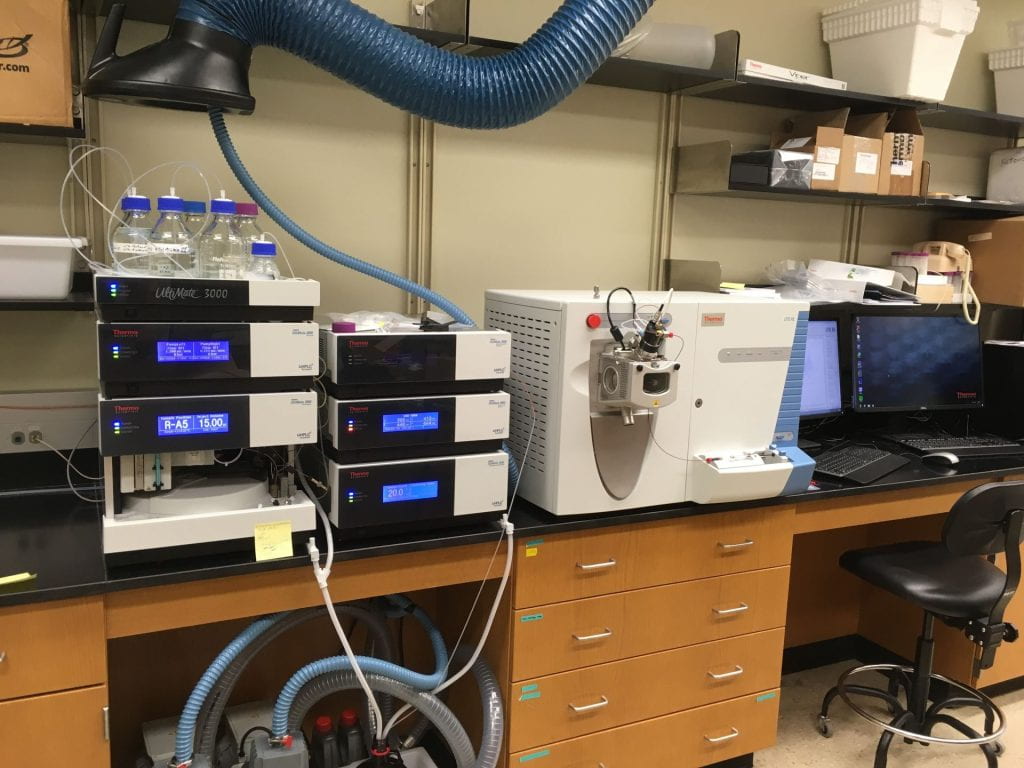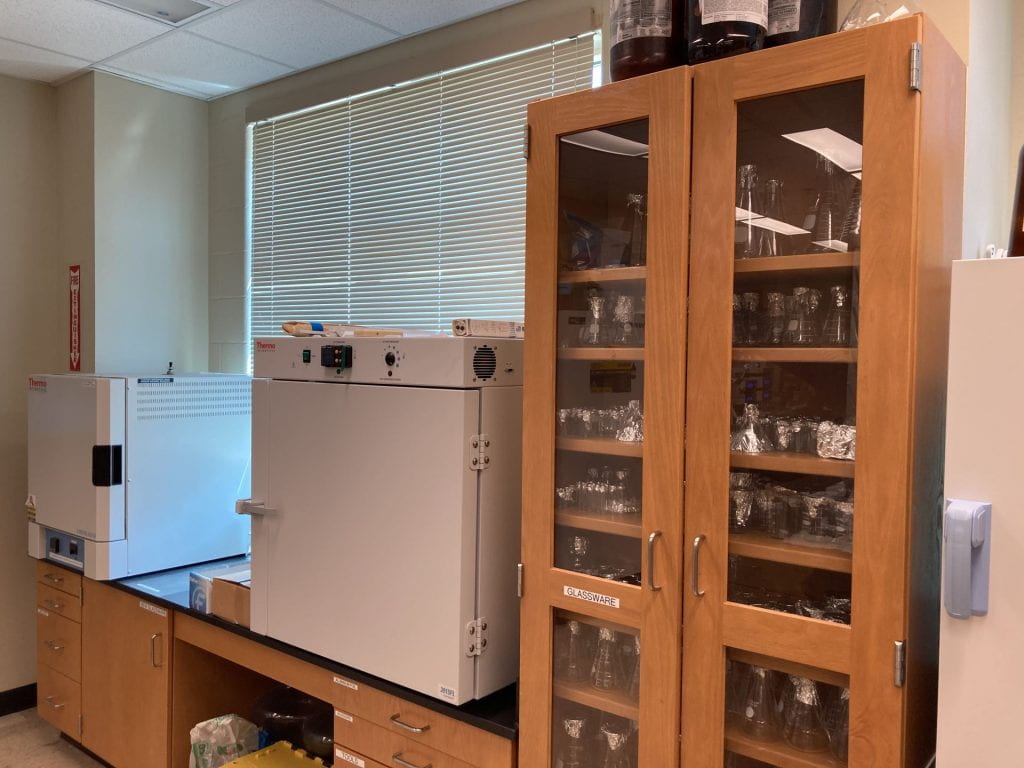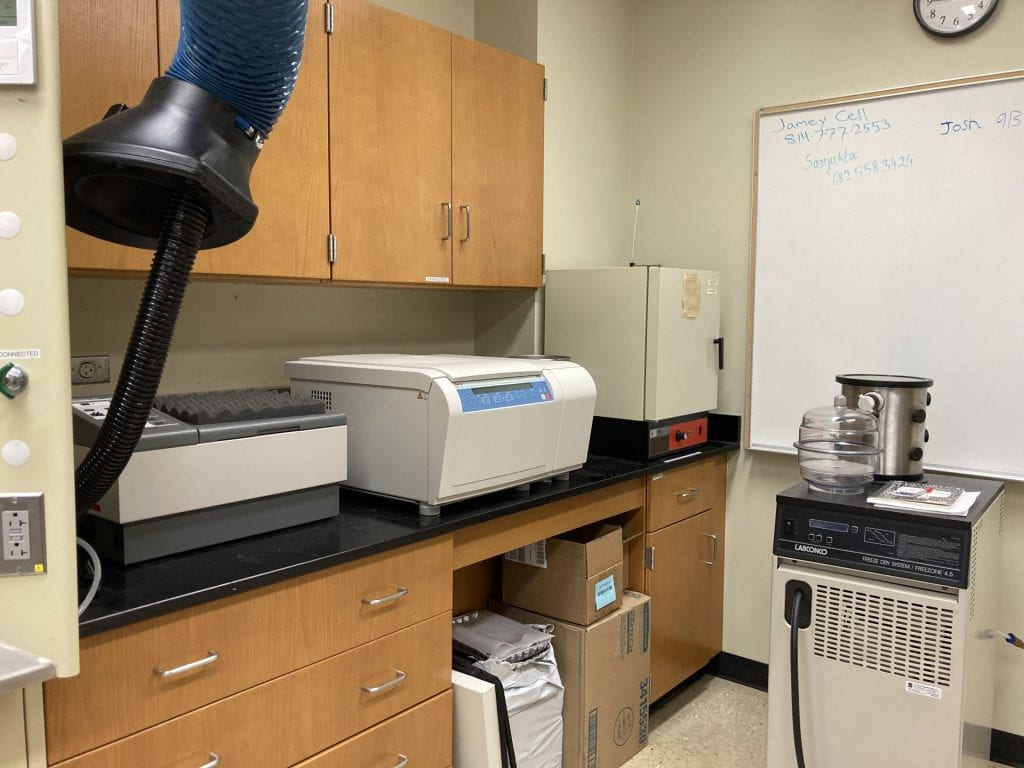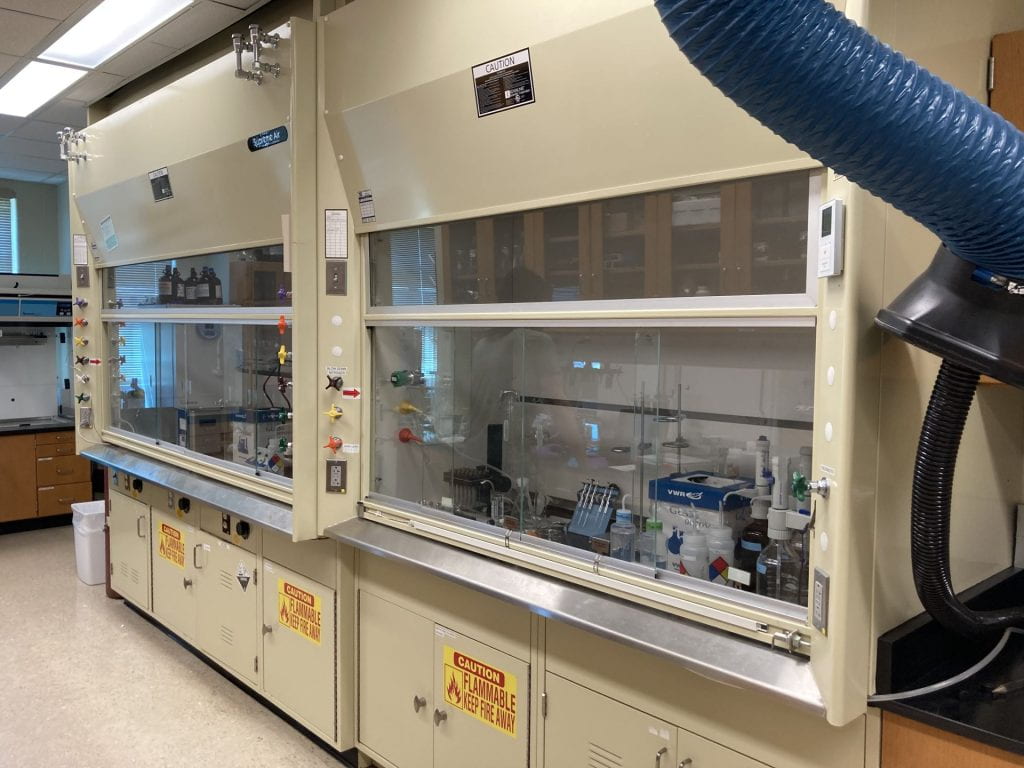The Microbial Biogeochemistry Laboratory is a 900 square-foot space in the Baylor Sciences Building. It was renovated in 2017-2018 and is adjacent to other research labs affiliated with the Center for Reservoir and Aquatic Systems Research (CRASR).

The primary analytical equipment in the Microbial Biogeochemistry Lab consists of a Thermo Fisher Scientific LTQ XL linear ion trap mass spectrometer coupled to a Dionex Ultimate 3000 high performance liquid chromatograph with additional diode array and fluorescence detectors. The system is optimized for analyzing extracts of pigments and polar lipids and their associated metabolites and degradation products.


The lab is equipped with bench-top incubators, a laminar flow hood, and related equipment for cell cultures as well as a Labconco freeze drier, Sorval refrigerated centrifuge, Caliper Life Sciences TurboVap LV, and other equipment for sample handling and chemical extractions.

The Microbial Biogeochemistry Lab includes 6-foot and 8-foot chemical fume hoods, a 30-cubic-foot freezer, and a 30-cubic-foot refrigerator for sample storage.
The Geosciences Department has additional equipment in the Organic Geochemistry Lab for characterizing the molecular composition of organic matter, including an Agilent 6890 gas chromatograph/5973 quadrupole mass spectrometer, a Bruker 300 MHz solid-state NMR, and a Dionex 200 accelerated solvent extractor (ASE).
Baylor Mass Spectrometry Center
Researchers in the Microbial Biogeochemistry Lab also use high-resolution accurate-mass Thermo Orbitrap mass spectrometers in the Baylor Mass Spectrometry Center. Training on instrument use and method development is provided by full-time technical staff. The high mass resolution instruments include (1) Thermo Orbitrap Fusion with direct infusion or HPLC (Vanquish analytical-flow) and ESI ionization with maximum resolving power of 500,000, (2) Thermo Orbitrap Q-Exactive Focus with resolving power up to 70,000 via direct infusion or a Dionex Ultimate 3000 UHPLC (ESI, APCI/APPI, or nano-ESI probes), and (3) Thermo Orbitrap Exploris 120 with direct infusion using ESI, APCI/APPI and nano-ESI and resolving power up to 120,000.
